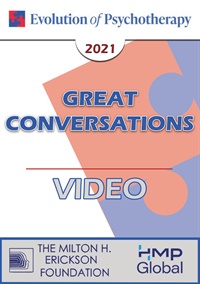
- Average Rating:
- Not yet rated
- Topic Areas:
- Great Conversations | Psychotherapy | Therapist Development
- Categories:
- Evolution of Psychotherapy | Evolution of Psychotherapy 2021
- Faculty:
- Donald Meichenbaum, PhD
- Course Levels:
- Master Degree or Higher in Health-Related Field
- Duration:
- 1 hour
- Format:
- Audio and Video
- Original Program Date:
- Dec 03, 2021
- Short Description:
- Unlike surgeons, psychotherapists usually do not get better with years of practice. Why is that? What skills are most important to develop in clinical training programs, and does it actually happen? Should we be focusing on evidence-based treatment techniques, interpersonal therapeutic skills, cultural competence, deliberate practice, scientific skepticism, fostering clients' strengths and resilience? Three seasoned clinical trainers reflect on the joys, challenges, and outcomes of preparing future psychotherapists.
- Price:
- $59.00 - Base Price
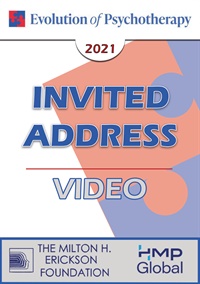
- Average Rating:
- Not yet rated
- Topic Areas:
- Femininity | Gender | Invited Addresses
- Categories:
- Evolution of Psychotherapy | Evolution of Psychotherapy 2021
- Faculty:
- Carol Gilligan
- Course Levels:
- Master Degree or Higher in Health-Related Field
- Duration:
- 1 hour
- Format:
- Audio and Video
- Original Program Date:
- Dec 03, 2021
- Short Description:
- Has research on girls' development changed our understanding of women's psychology? What are we to make of the frank and fearless voices of girls such as Greta Thunberg (with her climate strike) and Amanda Gorman (the poet at Biden's inauguration)? How can we understand women's silences?
- Price:
- $59.00 - Base Price
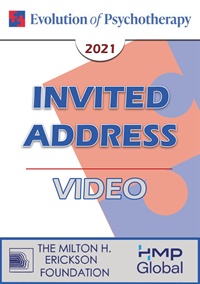
- Average Rating:
- Not yet rated
- Topic Areas:
- Invited Addresses | Multicultural | Pain and Healing
- Categories:
- Evolution of Psychotherapy | Evolution of Psychotherapy 2021
- Faculty:
- Helen Neville
- Course Levels:
- Master Degree or Higher in Health-Related Field
- Duration:
- 1 hour
- Format:
- Audio and Video
- Original Program Date:
- Dec 03, 2021
- Short Description:
- In this presentation, Dr. Helen Neville will present the Psychology of Radical Healing framework. The heuristic is designed to describe the ways in which Black, Indigenous, and People of Color engage in individual and collective healing from identity based wounds. She will focus her discussion on the dimension of radical hope. After highlighting research findings, she will describe current interventions that promote specific aspects of radical healing. Specific practice recommendations will be offered.
- Price:
- $59.00 - Base Price
Tags: Multi-Cultural Pain & Healing
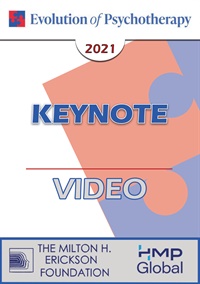
- Average Rating:
- Not yet rated
- Topic Areas:
- Keynotes | Therapist Development
- Categories:
- Evolution of Psychotherapy | Evolution of Psychotherapy 2021
- Faculty:
- John Gottman, PhD | Julie Gottman, PhD
- Course Levels:
- Master Degree or Higher in Health-Related Field
- Duration:
- 1 hour
- Format:
- Audio and Video
- Original Program Date:
- Dec 03, 2021
- Short Description:
- A Keynote featuring John Gottman, PhD, and Julie Gottman, PhD, from the 2021 Evolution of Psychotherapy Conference.
- Price:
- $59.00 - Base Price
Tags: Therapist Development
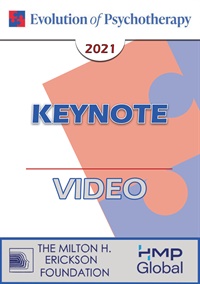
- Average Rating:
- Not yet rated
- Topic Areas:
- Addiction | Attachment | Couples Therapy | Keynotes | Love | Relationships
- Categories:
- Evolution of Psychotherapy | Evolution of Psychotherapy 2021
- Faculty:
- Helen E. Fisher, PhD
- Course Levels:
- Master Degree or Higher in Health-Related Field
- Duration:
- 1 hour
- Format:
- Audio and Video
- Original Program Date:
- Dec 03, 2021
- Short Description:
- Is technology changing love? Why do you fall in love with one person rather than another? Why is the rejected brain primed for psychotherapy? How can you use neuroscience to keep love alive? And where are we headed in our digital age? Anthropologist and neuroscientist Dr. Helen Fisher uses her brain scanning work (fMRI) to discuss three basic brain systems that evolved for mating and reproduction--the sex drive, romantic love, and attachment; each plays a pivotal role in human health and happiness. And she uses her data on 50,000 single Americans to explain a new (and positive) trend in courtship, what she calls “slow love.” She then discusses her data on the biological foundations of human personality—specifically four basic styles of thinking and behaving that impact love relationships and all other social interactions.
- Price:
- $59.00 - Base Price
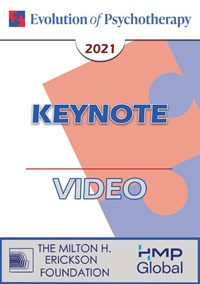
- Average Rating:
- Not yet rated
- Topic Areas:
- Keynotes | Psychotherapy | Storytelling
- Categories:
- Evolution of Psychotherapy | Evolution of Psychotherapy 2021
- Faculty:
- Cloe Madanes, HDL, LIC
- Course Levels:
- Master Degree or Higher in Health-Related Field
- Duration:
- 1 hour
- Format:
- Audio and Video
- Original Program Date:
- Dec 02, 2021
- Short Description:
- Madanes will tell the stories of some of her favorite therapies that are memorable because of how challenging they were, or how creative and innovative were the interventions. In these cases, she was either the therapist herself, or the supervisor observing the therapy through a one-way mirror. The audience will be challenged to discover the common thread - the strategy that all these therapies have in common.
- Price:
- $59.00 - Base Price
Tags: Psychotherapy Storytelling
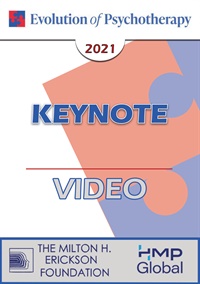
- Average Rating:
- Not yet rated
- Topic Areas:
- Art and Creativity | Keynotes | Therapist Development
- Categories:
- Evolution of Psychotherapy | Evolution of Psychotherapy 2021
- Faculty:
- Rob Kapilow
- Course Levels:
- Master Degree or Higher in Health-Related Field
- Duration:
- 1 hour
- Format:
- Audio and Video
- Original Program Date:
- Dec 02, 2021
- Short Description:
- "At the heart of psychotherapy is the idea that listening to someone is an inherently healing act. Can an understanding of the grammar of music help us better understand the grammar of how therapists can listen better and even advance therapeutic communication? Join NPR and PBS commentator Rob Kapilow a conductor/composer/author for a unique interactive exploration inside the language of music to see how it can help us learn to listen and communicate. Conducted by Kapilow musicians will play the final two movements of Haydn’s string quartet op 76/5. Learn to listen like Haydn. Learn the evocative grammar that underlies music.
- Price:
- $59.00 - Base Price
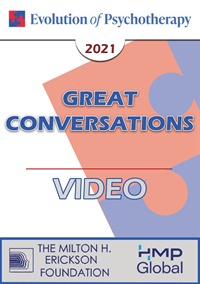
- Average Rating:
- Not yet rated
- Topic Areas:
- Attachment | Great Conversations | Psychotherapy
- Categories:
- Evolution of Psychotherapy | Evolution of Psychotherapy 2021
- Faculty:
- Sue Johnson, EdD
- Course Levels:
- Master Degree or Higher in Health-Related Field
- Duration:
- 1 hour
- Format:
- Audio and Video
- Original Program Date:
- Dec 02, 2021
- Short Description:
- Psychotherapy is in chaos - it needs a clear path forward that integrates research, theory and practice. Attachment science offers us a clear way to on target interventions that bring out clients home to health and resilience.
- Price:
- $59.00 - Base Price
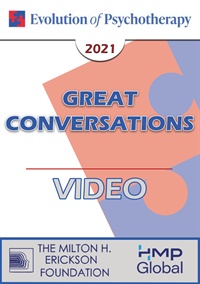
EP21 Great Conversations 06 - Somatic Modeling and Accessing Somatic Intelligence - Robert Dilts, BA
- Average Rating:
- Not yet rated
- Topic Areas:
- Great Conversations | Somatic Experiences
- Categories:
- Evolution of Psychotherapy | Evolution of Psychotherapy 2021
- Faculty:
- Robert Dilts, BA
- Course Levels:
- Master Degree or Higher in Health-Related Field
- Duration:
- 1 hour
- Format:
- Audio and Video
- Original Program Date:
- Dec 02, 2021
- Short Description:
- Somatic Modeling has to do with the organization of our physiology and "body language." Somatic Modeling focuses more on the form and deeper organization of body language than it does on its content. One of the primary objectives of Somatic Modeling is to mobilize and utilize the "wisdom of the body." A fundamental principle of Somatic Modeling is that there is information and wisdom in the body and knowledge in "the muscle." It is a way to access and take advantage of the full capacity of "the brain in our body." This session will explore how to apply Somatic Modeling as a key process for gathering information and finding resources in a therapy session.
- Price:
- $59.00 - Base Price
Tags: Somatic Experiences
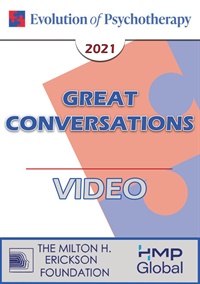
- Average Rating:
- Not yet rated
- Topic Areas:
- Great Conversations | Psychotherapy | Therapist Development
- Categories:
- Evolution of Psychotherapy | Evolution of Psychotherapy 2021
- Faculty:
- Scott Miller, PhD
- Course Levels:
- Master Degree or Higher in Health-Related Field
- Duration:
- 1 hour
- Format:
- Audio and Video
- Original Program Date:
- Dec 02, 2021
- Short Description:
- "Although therapists certainly need a clear clinical road map informing their work with clients, a rigid reliance on and allegiance to any particular theoretical model ignores what research tells us about what really matters most in therapy. More, being overly focused on implementing clinical protocols prevents us from being truly present with our clients -- the place where real therapeutic magic resides. Join two therapists as they trace the evolution of their thinking from being team members who helped develop the Solution Focused Brief Therapy model through today. Discover what they’ve learned about the real catalyst for change in therapy."
- Price:
- $59.00 - Base Price
Please wait ...

